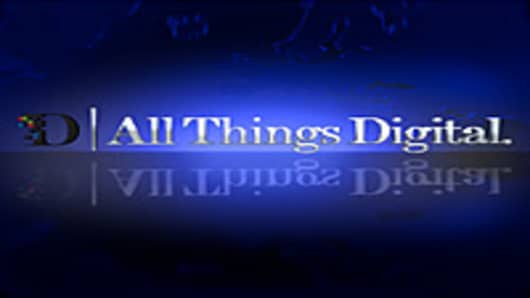The D: All Things Digital Conference kicked off here in Carlsbad, Calif. with the keynote talk from Bill Gates and Steve Ballmer.
A poignant get-together since Gates will leave the day-to-day job at Microsoft at the end of next month, and timely since Microsoft continues to try to strike some kind of deal with Yahoo to take on rival Google .
The formal talk was great, but the cocktail hour beforehand was almost surreal: Steve Case, Barry Diller, Jeff Bezos, Mark Zuckerberg, Blake Krikorian, Ann Winblad: you name the tech industry luminary and chances are he or she was wandering about.
Gates and Ballmer started with a trip down memory lane, talking about one of the tech industry's most enduring and successful relationships, stretching back 28 years. And it was an opportunity Ballmer almost missed out, thanks to the subtle recruitment strategy by Gates.
"This is a classic," says Ballmer. "I get this phone call. I'm living for like $100 bucks a month in downtown Palo Alto in a flea ridden room, and I pick up the phone, it's Bill, he says 'Hey! Gosh, what are you doing?' I go, I'm still in school. 'Oh God, too bad. Too bad you don' have a twin brother or something, we could really use something.' The guy just didn't come out and say it. 'Well, too bad, too bad.' Hung up. That was the sales call!"
The two obviously did hook up eventually and together created the world's most profitable tech company.
Today, Microsoft faces enormous challenges, not the least of which is trying to come up with a winning strategy against Google, against Apple , against a host of new and nimble competitors. I asked Gates whether he supported Ballmer's initiative to buy Yahoo, and he told me absolutely. Completely. I asked Ballmer whether he was frustrated that talks had fallen apart so close to striking a deal.



